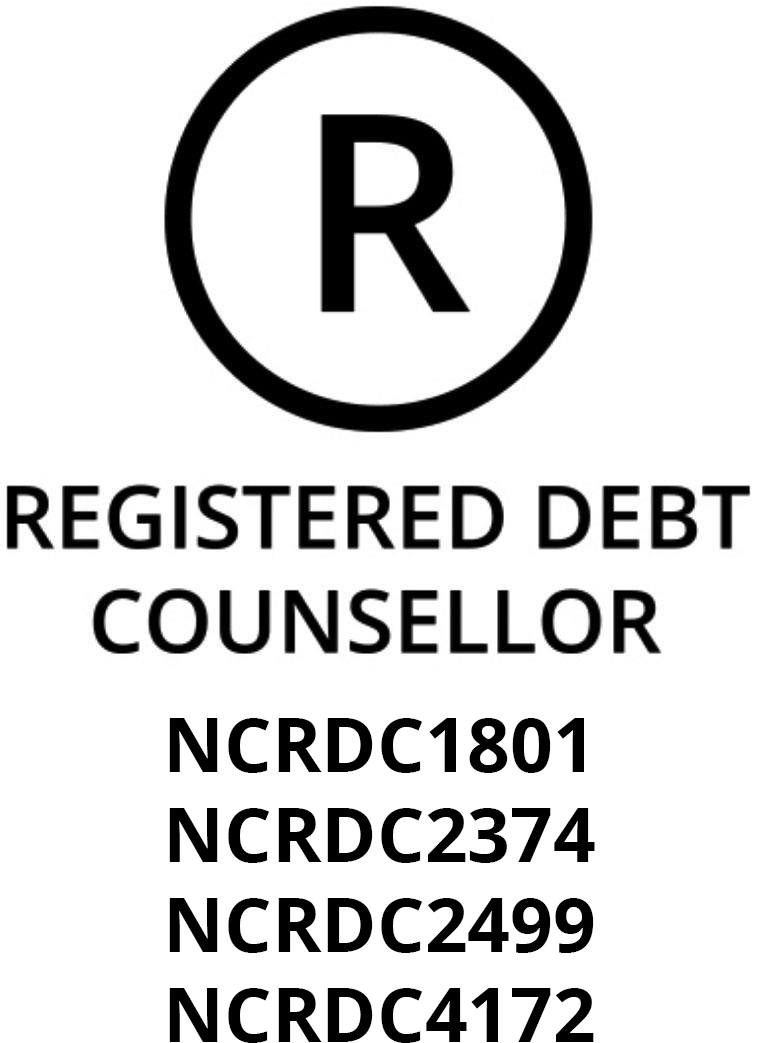If you’re struggling with debt, a debt repayment plan can help – but what if one or more of your lenders reject the proposal?
Here’s what you need to know and do to protect yourself and regain control of your finances.
Understanding debt repayment plans in South Africa
A debt repayment plan restructures how – and how much – you pay your creditors each month. In South Africa, the two most common legal routes are:
- Debt counselling – also known as debt review – a legal process under the National Credit Act (NCA). A debt expert helps to negotiate lower interest rates, lengthen repayment terms, and consolidate all debts into a single monthly amount.
- Administration orders – a magistrate’s court order that consolidates your debts into smaller, manageable payments without seizing your assets. The process often takes longer than debt counselling.
Need a refresher? See our complete beginner’s guide to debt counselling for a step-by-step overview.
What happens when credit providers say “no”?
Every one of your creditors should accept the repayment plan. However, if any of them say no, the following may occur:
1. Legal action
Your creditor could apply for a court judgement or a garnishee order, or seek to have your assets attached. This is a legal process that allows a creditor to seize or freeze your property to satisfy a debt or judgement against you.
Learn more about garnishee orders and emoluments attachment orders, and how to avoid them.
2. Damage to your credit score
Missed payments and legal action will hurt your credit score.
Find out what a credit report is and how listings work so you can monitor your profile.
3. Continued financial strain
You will have to revert to making the original, higher debt repayments with full interest, likely making your budget even tighter.
Your options if a repayment plan is rejected
If your plan is rejected, you may feel despondent – but this is not the end of the road. You still have some options.
Negotiate again
Ask your debt counsellor to resubmit a new proposal. They may renegotiate terms or present additional information relating to your income and expenses.
Our specialists at DebtBusters routinely secure revised offers that credit providers accept.
Escalate to the magistrate’s court
Under the NCA, a magistrate’s court can make your debt counselling plan legally binding through a court order.
This provides you with legal protection from creditor harassment and legal action, and also ensures that all parties comply with the agreed repayment terms.
A court order gives your debt restructuring plan official legal status and enforceability.
Seek independent legal advice
If you receive a section 129 notice or summons, speak to a lawyer or contact DebtBusters for guidance before the deadline lapses.
Don’t think the problem will go away on its own – ignoring these notices only makes things worse for you.
Need debt counselling or consolidation?
Explore DebtBusters' solutions for reducing your interest rates and unlocking cash.
Find out moreConsider alternative solutions
- Debt consolidation. You can consolidate your debt with or without a debt consolidation loan. If you have a healthy credit score, a debt consolidation loan may suit you. If you are overindebted and your credit score is at risk, a debt expert can help you combine multiple accounts into one single monthly repayment amount.
- Sequestration or administration. This is a last resort and a legal option that has long-term financial consequences. Sequestration is when a person voluntarily declares themselves insolvent and hands over their estate (assets and liabilities) to a court-appointed trustee. Administration is for people who owe less than R50,000 and can’t afford to repay their debts in full.
Tip: Compare the pros and cons of consolidating debt with a loan versus debt counselling before you decide.
How DebtBusters can help
Even when a creditor initially refuses your new repayment plan, DebtBusters can:
- Negotiate lower interest rates and extended terms with persistent creditors
- Draft a revised plan that keeps your monthly payment affordable
- Apply for a court order to compel a creditor to accept the debt restructuring plan
Ready to take the first step towards debt freedom? Contact the DebtBusters team for a free, no-obligation assessment.
FAQs
What should I do if my credit providers don’t accept my debt repayment plan?
Your debt counsellor can negotiate with your creditors or escalate the matter via the magistrate’s court.
You can also seek legal advice.
If you’re not yet under debt counselling, start the application process today.
Will my credit score be affected if my creditors don’t accept my debt repayment plan?
Maybe – if your creditors take legal action against you, or if you miss or only partially make a debt repayment, your credit score will likely drop. Use our client portal to track your credit status for free.
Can I be sued by my creditors?
Yes. Creditors may initiate legal action – including garnishee orders – if no debt repayment agreement is in place. Know your rights and understand how a debt counsellor can help.
How long does debt review take?
Most DebtBusters clients complete the debt review process in three to five years, depending on income and total debt. Our debt counselling guide explains the timelines.
Need debt counselling or consolidation?
Explore DebtBusters’ proven solutions for lowering interest rates and unlocking cash flow. Find out more.





